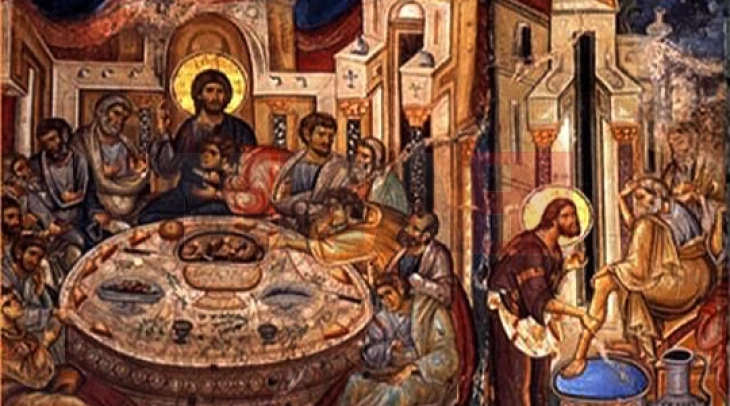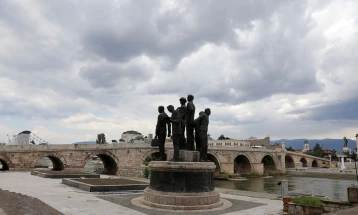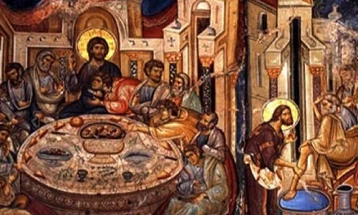Religious calendars
- Macedonian Orthodox Church Calendar; Our Holy Father Maximus the Confessor

3 February 2025 (MIA)
Macedonian Orthodox Church Calendar
Our Holy Father Maximus the Confessor
By birth a citizen of Constantinople and at first a high-ranking courtier at the court of the Emperor Heraclius, he then became a monk and the abbot of a monastery not far from the capital. He was the greatest defender of Orthodoxy against the so-called Monothelite heresy, which developed from the heresy of Eutyches. That is to say: as Eutyches asserted that there is in Christ only one nature, so the Monothelites asserted that there is in Him only one will. Maximus resisted this assertion and found himself in opposition to both the Emperor and the Patriarch. But he was unafraid, and persevered to the end in proving that there are in the Lord two wills and also two natures. By his efforts, one Council in Carthage and one in Rome stood firm and both these Councils anathematised the Monothelite teaching. Maximus’s sufferings for Orthodoxy cannot be described: tortured by hierarchs, spat upon by the mass of the people, beaten by soldiers, persecuted, imprisoned; until finally, with his tongue cut out and one hand cut off, he was condemned to exile for life in Skhimaris, where he gave his soul into God’s hands in the year 662.
Catholic Calendar
St. Blase, bishop and martyr
Saint Blase was reported to have hidden from the Roman authorities by living in a cave with wild animals, whom he tamed by blessing. Blase was discovered by hunters who saw him curing sick and wounded animals. The hunters captured him and took him to the government. As Blase was on his way to prison, he encountered a mother whose boy was choking to death on a fishbone. Blase blessed the boy’s throat, and dissolved the fishbone. During Blase’s imprisonment, the mother brought him food and candles. After being ripped by wool-combs, Blase was beheaded. Blase was always invoked for ailments of the throat; and persons who go to church on his feast day, have their throats blessed. The custom of using two candles in the blessing derives from the candles which the choking boy’s mother brought to Blase. Saint Blase is recognised as the patron of wild animals, wool combers, and all persons who have ailments of the throat. Sick cattle are sometimes given water with the blessing of St. Blase.







